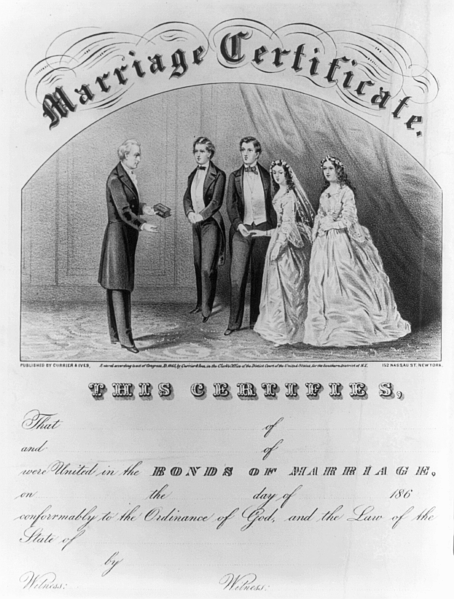In this essay, Aisha Rutherford concludes that the current regime is inadequate and the emergence of the fast-fashion industry has exasperated the need for reform. By increasing copyright protection American legislation would be more legally certain, effective and suitable, henceforth enabling the fashion industry to truly flourish.
All in Volume VI - 2020
Building a New Foundation for Trusts of the Family Home: The Case for Unjust Enrichment
In this essay, Zachary Salmon advocates for a new foundation for trusts of the family home disputes.
A Journey to the Centre of Political Constitutionalism: Is there a Role for Direct Democracy?
In this essay, Daniel Jukes highlights that political constitutionalism is the best method of organising decision-making power within a constitution. This is because political constitutionalism is the best way of promoting political equality which in turn fosters a greater sense of freedom and individual autonomy.
Local Solutions to Global Problems: Drawing on Indigenous Environmental Stewardship to Inform International Legal Conservation Strategies
In this essay, Bryn Evans considers how the protection of Indigenous biocultural relationships through both a rights and knowledge framework can form the base for a more sustainable system for IEL.
Slow and Steady: International Law’s Gradual Recognition of Corporate Accountability
In this essay, Oskar Polanski argues that international law should impose responsibilities on corporations that have been endowed with the benefits of legal personality. This is a response to the fact that we live in a world in which corporations are not only able to exert more influence than some countries but are also able to commit violations of human rights without being held to account.
"The cold penetrating gaze of the camera lens is, in effect, like a double rape." Technology-Facilitated Sexual Violence: Legislative and Judicial Responses to this "Pernicious New Habit"
Lily Wildman discusses the topic of perpetrators’ using their digital devices to record rape and sexual assaults. In this essay it is argued that there is a lacuna in criminal legislation, which requires the creation of a separate offence for recording sexual violence. This is because of the additional harm it causes to the victim and the difficulties associated with prosecuting sexual abuse cases in the first place.
Go Fish! A Critical Assessment of G. Hardin's 'Tragedy of the Commons' Application to the Fishing Industry
In this essay, Clara McNeill discusses the threat of overfishing to marine ecosystems applying Hardin’s theory of the ‘Tragedy of the Commons’. This discussion argues that communities who assume ownership over natural resources can sustain populations and encourage longevity of the industry. In effect, although there is no perfect solution, intervention is required as it is impossible to regulate a global resource.
Balancing Legitimate Expectations and Regulatory Freedom under Article 10(1) Energy Charter Treaty: Lessons from the Green Energy Tribunals
In this essay, Rahul Wijewardane explores the rising prominence of the climate change objectives and the green agenda that has given new impetus for re-examining the balance struck between investor’s interests and the regulatory right of states. This dissertation undertakes a case-study of the current balance between investor interest and state regulatory freedom in investment protective standards.
A Critical Evaluation of ECHR Article 9 Jurisprudence: Selective Protection of Identity?
In this essay, Lucy Heenan considers Article 9 jurisprudence of the European Court of Human Rights. This dissertation argues that the European Court of Human Rights has selectively protected religious identity in Europe. It analyses how the Court has exercised differential treatment of the protection of the Muslim veil and the display and wearing of Christian symbols in the case law.
Rape Modified: What Does Catharine MacKinnon’s ‘Rape Redefined’ Proposal Mean for English Law?
In her dissertation, Joy Wee analyses rape law reform through the lens of a feminist perspective. Acknowledging that the reasons why and proposals for how to reform rape law is subject to much disagreement, she focuses on and critiques the contributions made by Catharine A. MacKinnon.
A Critical Analysis Of The Embryopathic Indication For Abortion, Section 1(1)(D) of The Abortion Act 1967, And The Extent To Which It May Constitute Disability Discrimination.
In her dissertation, Danielle Mitchell analyses disability-selective abortions and their potential effects for discrimination. Concluding that they are discriminator, Mitchell proposes potential reforms.
Critically analyse Angela Harris’ discussion of feminism and essentialism in her article “Race and Essentialism in Feminist Legal Theory.”
In this essay, Alice Williams has sought to highlight how Angela Harris’ rejection of essentialism is based upon an assumption that essentialism may only manifest itself in one format. Harris fails to recognise that soft essentialism exists, despite the similarities it has with her own theory of multiple consciousness.
Should Marriage Today Be Viewed as a Private Union or a Public Institution of the State?
In this Dissertation, Lucy Flower concludes that current marriage law is in desperate need of reform and restructuring, along a privatised line, with simplified formalities, aiming to creating one uniform marriage law for civil and non-Anglican marriages.
‘Alimony Drones’ and ‘Gold-Diggers’: Protecting Economic Vulnerability Through Spousal Maintenance Orders
In this Dissertation, Sophia Gonella critically evaluates the law governing spousal maintenance awards on divorce.
Neither seen nor heard: why the voice of the child is still not loud enough in family proceedings following the missed opportunity of Re W
In this Dissertation, Celine D. Kart assesses the inadequacies of Child Law and the incompatibility of the English and Welsh position of the child in court with international human rights obligations, using Re W [2011] as its focus.















